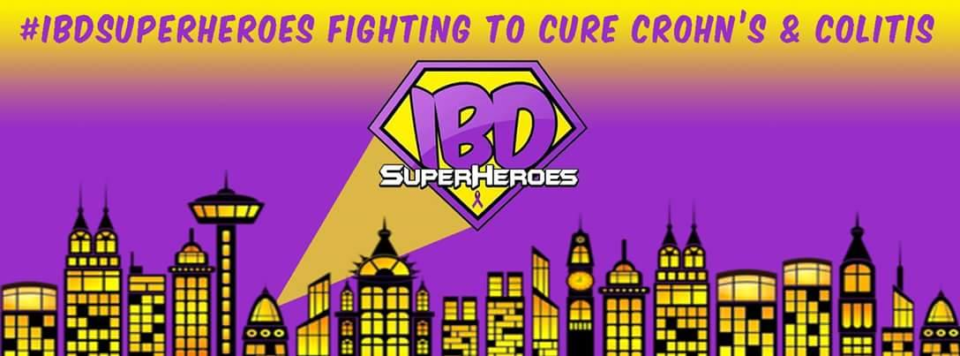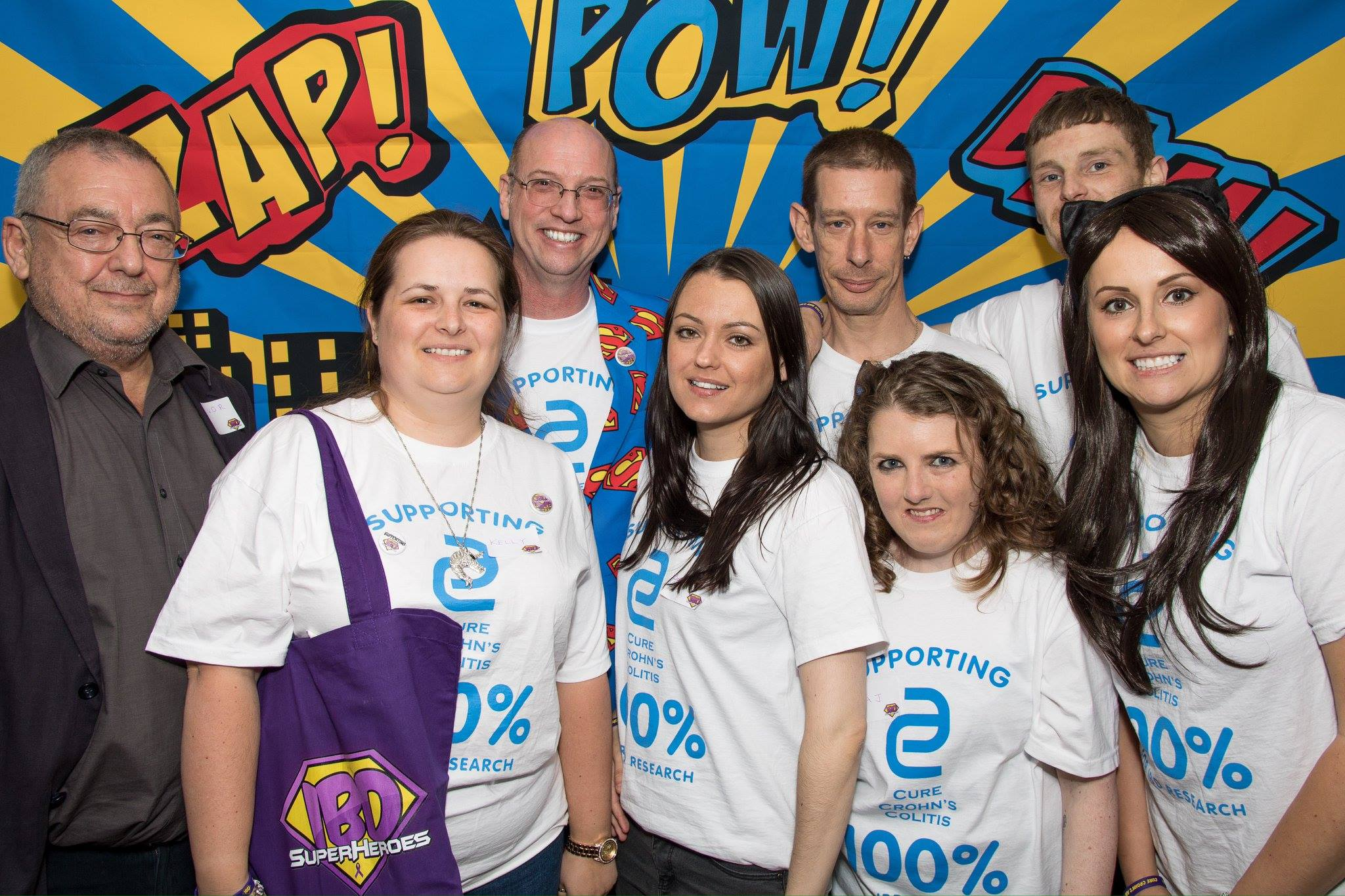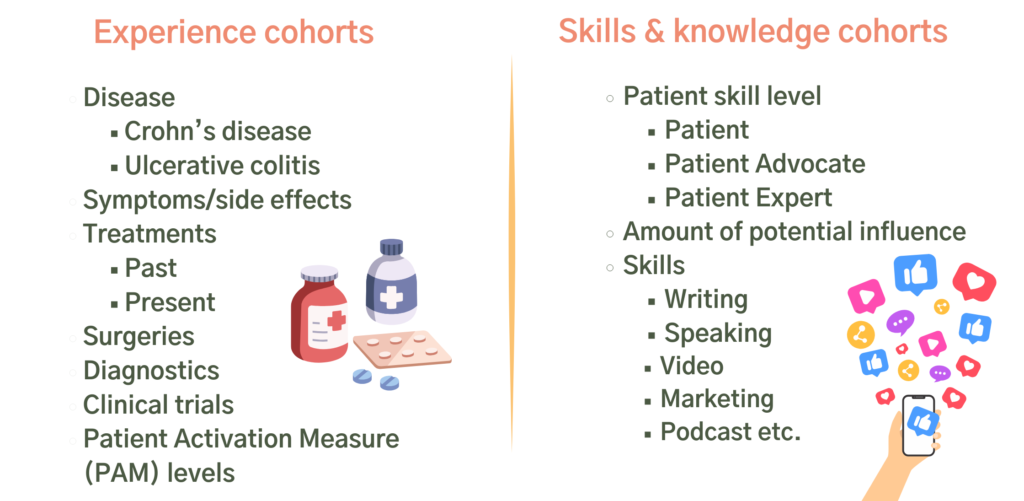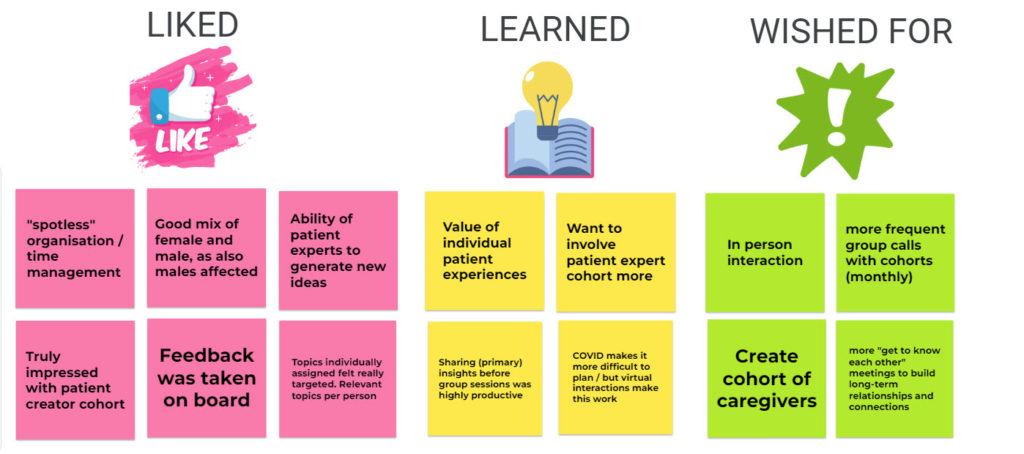

Seven years after being diagnosed with ulcerative colitis, a form of inflammatory bowel disease (IBD), I finally opened up about it online. I found my disease difficult to talk about openly due to what I perceived to be the embarrassing nature of it. I had been using Twitter under a pseudonym to engage with the IBD community before that, so I was already aware that many people with IBD had an unmet need for support and understanding.
My post went viral. People with IBD from all over the world were commenting on my post. I had hundreds of friend requests from the same people, and more besides.
It was a very organic journey from that first post to patient advocacy. I’d already acknowledged the need for support and understanding, so I started writing blogs and raising awareness online. That was a pretty easy manoeuvre because I was working in social media marketing at the time.
I set up IBDSuperHeroes with a small team of other people affected by IBD. We were essentially building a mini-community, bringing together people with shared experiences around a specific condition. We aimed to raise awareness and funds for IBD research. The need for a private group became apparent pretty quickly, so we set one up on Facebook. It was a beautiful sight. People were excited to have a space where they didn’t feel they needed to censor themselves. They didn’t have to tell a huge backstory to add context to a current situation like one might when talking to friends or family.
More and more people began advocating in the IBD space. Many people told me I had inspired them and given them the confidence they needed to make that leap. Over the years, I’ve seen many advocates come and go. I’ve also seen advocates come and stay.
Some advocates stick to story sharing and awareness raising. Others, like me, prioritise education. We learn as much as we can about disease management and disseminate information that we believe can help others. They might run communities, host podcasts, or just use social media. We’re the type of people who actively seek and get involved with IBD-related projects, from new digital health solutions to PPIE groups for IBD research or patient organisations. These people, who for merakoi are patient experts, have become respected and trusted contacts.

As someone deeply engaged with the IBD online community, I've seen how it organically functions like the mini-communities merakoi builds, with different patient segments forming natural cohorts.
At merakoi, I get to apply my experience building IBDSuperHeroes to create purposeful patient communities for health innovators. I'm responsible for recruiting members, vetting them, getting them contracted, and scheduling all the interactions. Our digital platform makes this process seamless and efficient. I work closely with our partners to define the right cohorts for their needs, whether that's by treatment type, disease severity, online influence - you name it.
Essentially, I get to be a matchmaker, connecting the right patient voices to the right projects at the right time. And let me tell you, watching mini-community insights shape better health solutions never gets old.
It’s easy for me, as someone who is continually engaged with the online IBD community, to divide it into mini-communities. These mini-communities can be split in many different ways, such as:

I came to know merakoi early in its inception. I was a pharmaceutical company's lead patient consultant for an IBD project. They made the most of my marketing skills and disease experience. I was involved from the start, with everything from market research to survey design.
When the time came to dip into the aforementioned cohorts within my mini-communities, I’d got them ready-made. Lucky Pharma! I recruited patient experts for focus groups and patients and caregivers for surveys easily, because I knew my community and I had their trust. However, a great opportunity was potentially missed here.
Nearly all of the patients who got involved with the focus groups and patient survey were interested in doing more.
They asked me to let them know about future opportunities, whether they were part of the same project or unrelated. This was a lightbulb moment for me. These patients were eager to stay engaged, but the typical one-off project model didn't allow for that.
I know from working in patient recruitment for merakoi, that patients in all disease areas really do want to be involved as much as possible. Highly activated patients are keen to change the future of healthcare and patient support. They get involved with things like patient advisory groups, grant reviews, reading panels, or steering committees, which are usually a long-term commitment. But when Pharmaceutical or Biotech companies involve them, it’s usually a one-off project with a particular task, goal, and outcome. Once that has been achieved, the project is over and they have no idea what happens from there unless the drug hits the market several years later or the solution they worked on is released.
Even lesser activated patients want to help where they can. I don’t doubt that money can be a driving factor in that, particularly because poor health can impact a person's ability to hold down a full-time job. But, some patients just enjoy feeling seen and heard. They want to tell their story and are keen to highlight gaps in the system or solutions designed for them. For some, there’s a genuine interest in the product, clinical trial, solution, app etc. They want to be involved further, but they are not given the opportunity. Others just love feeling like they’re contributing to the changes they want to see, whether it be in healthcare, diagnostics, digital health solutions, or disease management. It's an opportunity to be more than just a patient.
It’s great that healthcare companies are recognising the value patients bring in product and service design. I love that more and more companies are involving patients during the design concept phase, rather than bringing them in to tick boxes once the design is complete. However, not continually engaging with potential users throughout the whole design phase results in the final product or service being unsuccessful.
Patient insights being considered in the initial phases of product, service, or clinical trial design is great, but as it progresses, those insights get diluted. Ideally, there should be a continuous engagement and feedback loop. This ensures that when it’s time to release whatever the solution is, it’s real-world ready. Tried and tested, and then tried and tested again!
This engagement and feedback loop builds trust within the patient community, and if done right, will highlight to the community that you have a shared goal of improving healthcare. If members of the mini-community feel like valued and respected stakeholders, that positively impacts how the wider community sees you, and your product or service, long-term.

At merakoi, we've seen the transformative power of continuous patient engagement through mini-communities and cohorts time and again. From clinical trials and digital therapeutics to medical devices, our partners have been able to create solutions that truly resonate with their target users by making patient input an integral part of the process from start to finish.
If you're ready to harness the superpowers of patients and create health solutions that hit the mark every time, we've got you. Contact me to learn more about building a mini-community for your next project. Together, let's unleash the potential of patient-partnered innovation!
About Merakoi
Merakoi partners with health and life sciences companies to build mini-communities that guide product development through continuous user insights. Our network of patients/advocates and proprietary community platform enable engaging, longitudinal co-creation between users and developers. The result is human-centered solutions that resonate powerfully in the real world.

✕